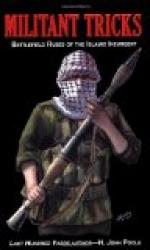brows he read on to the end, and then the letter dropped
from his fingers to the floor and he did not notice;
his eyes stared widely at the high building across
the street, the endless rows of windows, the lights
flashing into them here and there. But he saw
none of it. He saw a stretch of quiet woodland,
an old house with great white pillars, a silent, neglected
garden, with box hedges sweet and ragged, all waiting
for him to come and take care of them—the
home of his fathers, the home he had meant, had expected—he
knew it now—would be some day his own, the
home he had lost! John Fairfield’s letter
was to tell him that the mortgage on the place, running
now so many years, was suddenly to be foreclosed;
that, property not being worth much in the neighborhood,
no one would take it up; that on January 2nd, Fairfield,
the house and land, were to be sold at auction.
It was a hard blow to Philip Beckwith. With his
hands in his overcoat pockets he began to walk up and
down the room, trying to plan, to see if by any chance
he might save this place he loved. It would mean
eight thousand dollars to pay the mortgage. One
or two thousand more would put the estate in order,
but that might wait if he could only tide over this
danger, save the house and land. An hour he walked
so, forgetting dinner, forgetting the heavy coat which
he still wore, and then he gave it up. With all
he had saved—and it was a fair and promising
beginning—he could not much more than half
pay the mortgage, and there was no way, which he would
consider, by which he could get the money. Fairfield
would have to go, and he set his teeth and clinched
his fists as he thought how he wanted to keep it.
A year ago it had meant nothing to him, a year from
now if things went his way he could have paid the
mortgage. That it should happen just this year—just
now! He could not go down at Christmas; it would
break his heart to see the place again as his own
when it was just slipping from his grasp. He
would wait until it was all over, and go, perhaps,
in the spring. The great hope of his life was
still his own, but Fairfield had been the setting
of that hope; he must readjust his world before he
saw Shelby again. So he wrote them that he would
not come at present, and then tried to dull the ache
of his loss with hard work.
But three days before Christmas, out of the unknown forces beyond his reasoning swept a wave of desire to go South, which took him off his feet. Trained to trust his brain and deny his impulse as he was, yet there was a vein of sentiment, almost of superstition, in him which the thought of the old place pricked sharply to life. This longing was something beyond him—he must go—and he had thrown his decisions to the winds and was feverish until he could get away.




